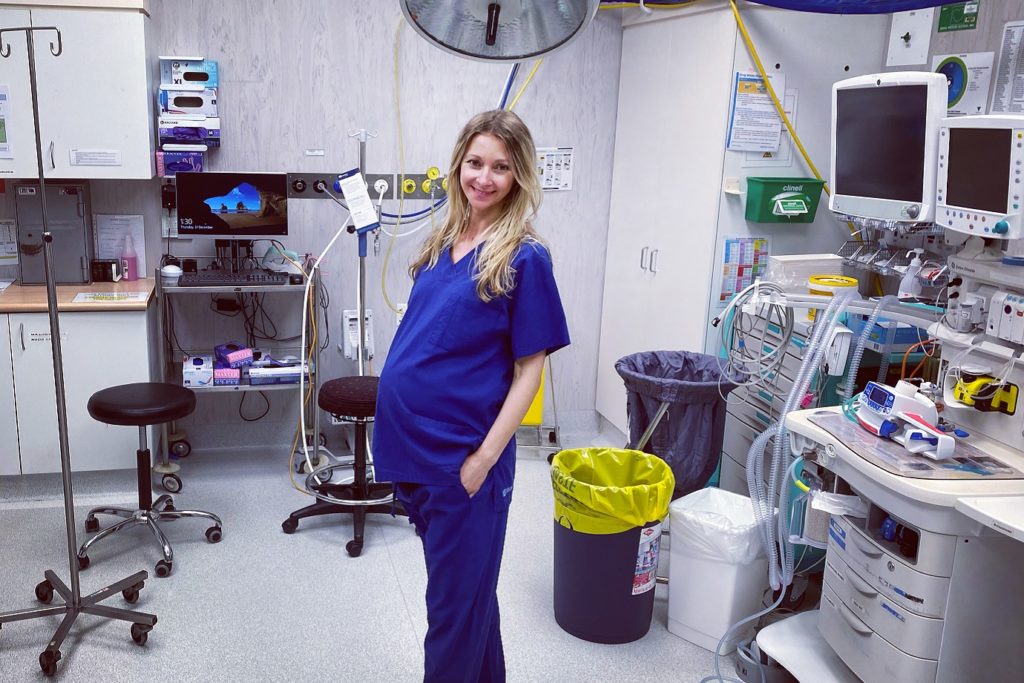‘Don’t get pregnant, it will ruin your career’.
This is what many female surgical registrars hear over the years of their unaccredited and accredited training. Even at internship level, there are many elephants in the room, none more potent than the fertility of the female doctors.
When I was in my unaccredited surgical training, I investigated the mental health of surgical trainees, and the results I discovered sadly did not shock me. My study showed that surgical trainees had lower mental health outcomes compared to the general Australian population, and that the working conditions were directly linked to it. ‘Medicine is eating their young’ was the phrase often used to describe the culture.
Fast forward a few years later, I’m finding yet another elephant in surgical training: female fertility.
Last year, whilst studying for my final surgical exam, and after its cancellation in May 2020, I made the decision to stop delaying my chance of having a baby.
At that time, a number of female surgeons were discussing the infertility concerns among female surgeons in America. I followed the discussion with great interest and was moved by the experience of Dr Salles, who discovered her inability to fall pregnant after many years of surgical training. The message was clear, ‘Don’t delay, don’t risk infertility, your career CAN wait’.
I was 33 years old at that time and was staring at a long dark tunnel with no light in sight. My exam was cancelled, I decided that this was the right time. Eight weeks later, after a long 12 hour a day week, my husband and I found out that we were pregnant. I was surprised, excited, but apprehensive.
A recent article in the JAMA journal highlighted the struggles many surgeons face with infertility, pregnancy complications and breastfeeding practices in America. Nearly half of those surveyed experienced pregnancy complications, whilst 42% had suffered a pregnancy loss, more than twice the rate of the general population.
Many commence surgical training during the prime reproductive years, after the difficult task of securing a spot in the accredited surgical program. It is a brutal process, and one that Dr Yumiko Kadota passionately described in her autobiography Emotional Female.
Entering the surgical training program does not secure family-friendly years either. At least four years are spent working long hours, often interstate, with numerous hurdles along the way. It leaves little time for finding a partner. Little is spoken of fertility and pregnancy and very few registrars fall pregnant during these years.
I worked to 38 weeks of my pregnancy to ensure that the term counted towards my training and that I wouldn’t have to repeat the year. I interrupted my rounds to deal with morning sickness, attended surgeries often six hours straight without a break to keep up with the boys.
I battled insomnia, severe fatigue, leg swelling, and anxiety during my pregnancy. I worried about radiation induced complications, the impact of long days on my pelvic floor, and unexpected delivery that may prevent me from having the term accredited.
I stressed about the risks of covid infection on my pregnancy and I worried that my stress was impacting on my baby’s health. I was concerned that I would lose my pregnancy, like so many of my colleagues did.
Luckily for me my fears weren’t realised, and at 39 weeks, I delivered a healthy baby girl. Six months later I am back at work, finishing off my surgical training, expressing breastmilk in between surgeries, and raising my daughter alongside my supportive husband, and my wonderful parents and daytime nanny.
As I set upon the task of studying the incidence of infertility, pregnancy complications and breastfeeding practices among the Australian population, I am staring down that elephant with hope that times will change and female doctors’ fertility will be in the spotlight.
Early education about fertility preservation among junior doctors should be offered, occupational hazards contributing to infertility discussed, and part time training offered to allow for family planning.
Pregnancy among registrars and surgeons should not be seen as a career breaking move. We need to encourage and support those who wish to pursue a family and eliminate yet another elephant in the medical room.


